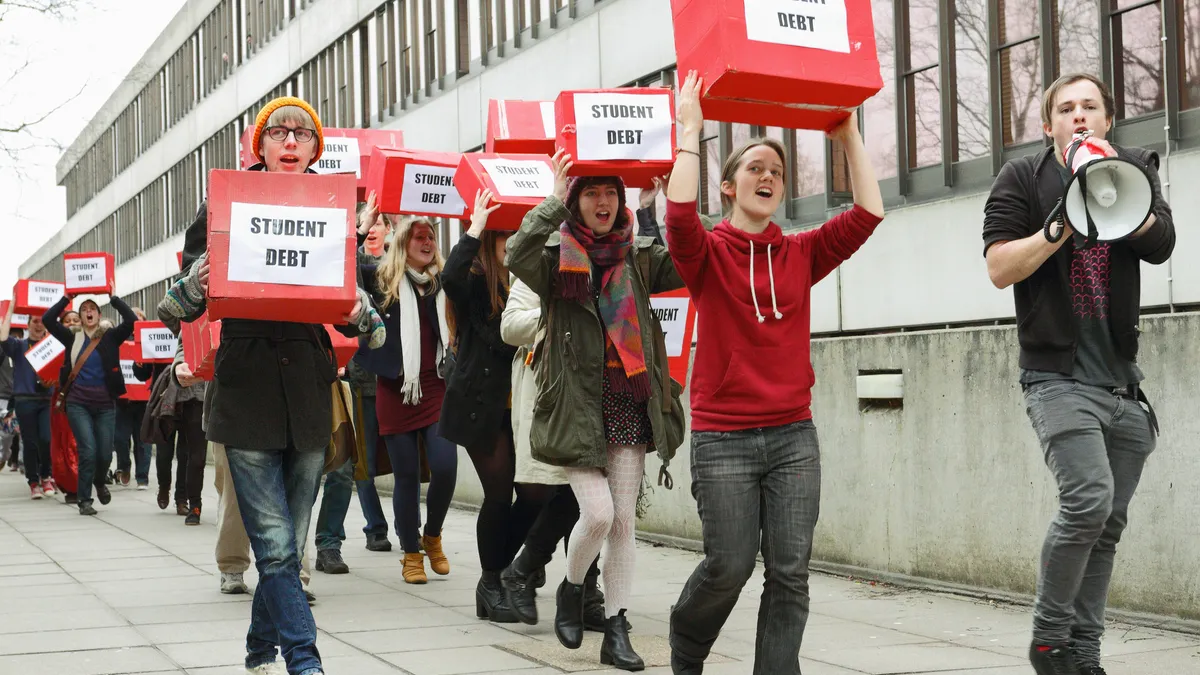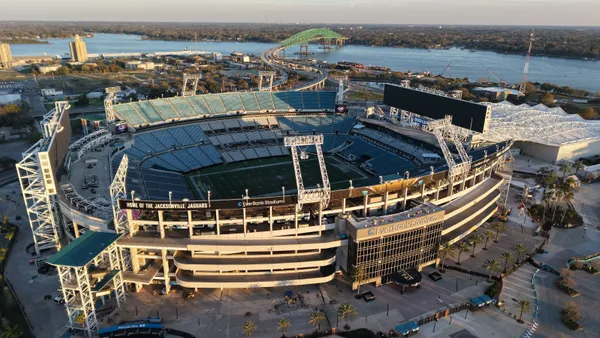Dive Brief:
- 71% of potential homeowners saddled with student loan debt said the financial burden was keeping them from buying a home, according to a joint National Association of Realtors and SALT/American Student Assistance survey.
- Over 50% of all respondents with loans said their student debt would delay homeownership by more than five years, and 40% said it would keep them from moving out of a family member's home.
- The survey also found this pessimistic view of the potential for homeownership was higher (79%) for older millennials between the ages of 26 and 35 with $70,000 to $100,000 of student debt.
Dive Insight:
The survey also found that most respondents had student debt of $20,000 to $30,000, while 38% owed $50,000 or more.
Potential sellers who would like to buy a new home are also held back by student debt (31%), according to the survey. Some sellers (6%) said they're underwater on their mortgages because the extra money that could go toward bringing down mortgages is going to pay student loans, while 18% said the obligation makes moving too expensive.
In March, the NAR also reported that while millennials have said that student debt affects their ability to save for a home, baby boomers actually carry the most debt, whether it's their own or an obligation on behalf of a child or other family member. In addition, a National Association of Home Builders report found that student debt is one of the financial drags on first-time homebuyers that has resulted in the absence of two million millennial homeowners from the market.
Last month during the NAR's Legislative Meeting, Sen. Elizabeth Warren (D-MA) emphasized the need for student loan reform, as student debt can create a major obstacle to homeownership for potential buyers. She said reform can "breathe new life into housing markets." Rising rents are making it increasingly difficult for people to save for down payments, and first-time buyers — the group mostly likely to be burdened with student debt — represent only one-third of the housing market, the lowest share in 30 years.













